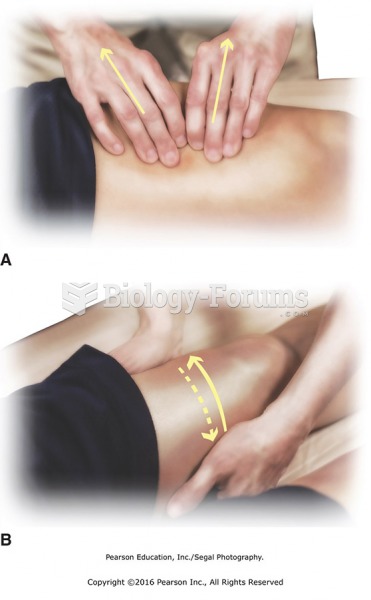|
|
|
A seasonal flu vaccine is the best way to reduce the chances you will get seasonal influenza and spread it to others.
The first successful kidney transplant was performed in 1954 and occurred in Boston. A kidney from an identical twin was transplanted into his dying brother's body and was not rejected because it did not appear foreign to his body.
Vampire bats have a natural anticoagulant in their saliva that permits continuous bleeding after they painlessly open a wound with their incisors. This capillary blood does not cause any significant blood loss to their victims.
Inotropic therapy does not have a role in the treatment of most heart failure patients. These drugs can make patients feel and function better but usually do not lengthen the predicted length of their lives.
Earwax has antimicrobial properties that reduce the viability of bacteria and fungus in the human ear.
 An Internet connection is usually needed to perform updates although some vehicle manufacturers use ...
An Internet connection is usually needed to perform updates although some vehicle manufacturers use ...
 The hierarchical organization of the sensory systems. The receptors perform the simplest and most ...
The hierarchical organization of the sensory systems. The receptors perform the simplest and most ...





